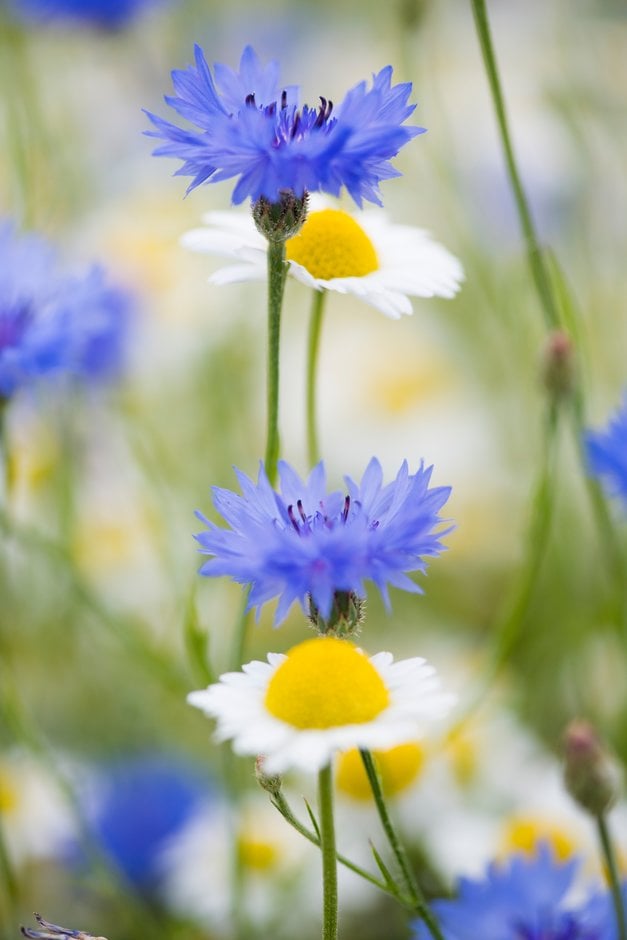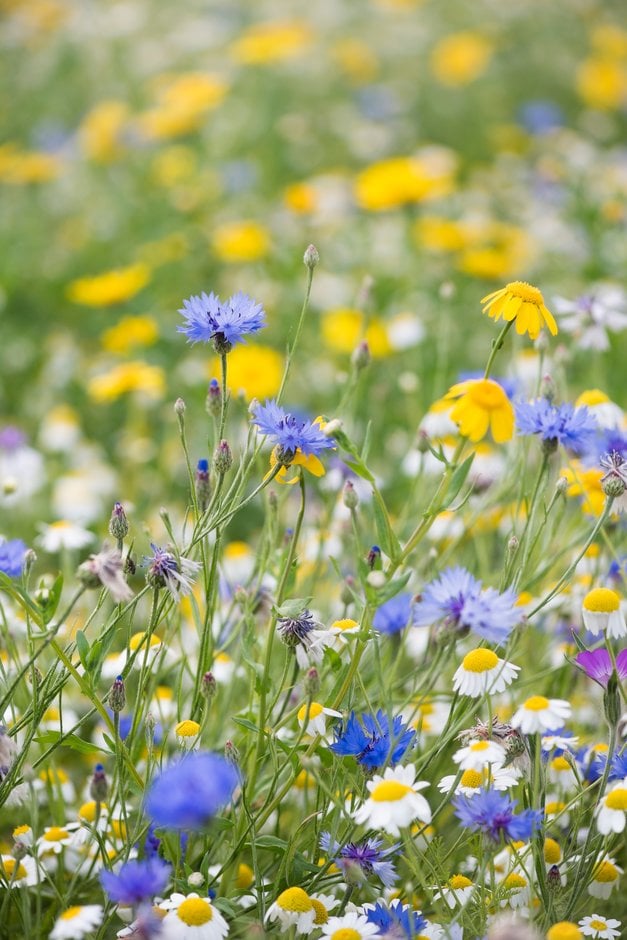Centaurea cyanus
cornflower
A cornflower annual to 75cm tall, with lance-shaped, slightly lobed, mid-green leaves, and solitary deep blue flowerheads 3-4cm across, with violet-blue inner florets, in late spring and summer
Other common names
barbeaublaver
see moreblue blaw
blue bonnets
blue bow
blue sailors
blue tops
break-your-spectacles
brushes
bunk
corn binks
corn centaury
cornbottle
French pink
happy skies
haw dods
hurtsickle
ragged sailor
bachelor's buttons
blawort
blue poppy
bluebottle
bluets
ragged robin
witches' bells
penlas yr ŷd
Size
Ultimate height
0.5–1 metresTime to ultimate height
1–2 yearsUltimate spread
0.1–0.5 metresGrowing conditions
Moisture
Well–drainedpH
Acid, Alkaline, NeutralColour & scent
| Stem | Flower | Foliage | Fruit | |
| Spring | Blue | Green | ||
|---|---|---|---|---|
| Summer | Blue | Green | ||
| Autumn | ||||
| Winter |
Position
- Full sun
Aspect
South–facing or West–facing
Exposure
Exposed or Sheltered Hardiness
H6Botanical details
- Family
- Asteraceae
- Native to GB / Ireland
- Yes
- Foliage
- Deciduous
- Habit
- Clump forming
- Genus
Centaurea may be annuals, perennials or subshrubs, with simple or pinnately lobed leaves and showy thistle-like flowers-heads, often with enlarged outer florets
- Name status
Correct
- Plant range
- N Termperate regions
How to grow
Cultivation
Grow in well-drained soil in full sun
Propagation
Propagate by seed sown in-situ in spring or autumn
Suggested planting locations and garden types
- Coastal
- Cottage and informal garden
- Patio and container plants
- Wildflower meadow
- Wildlife gardens
- Cut flowers
- Flower borders and beds
Pruning
Deadhead regularly to prolong flowering
Pests
Generally pest-free
Diseases
May be susceptible to Powdery mildews
Love gardening
Sign up to receive regular gardening tips, inspiration, offers and more
View our Privacy Policy
Get involved
The Royal Horticultural Society is the UK’s leading gardening charity. We aim to enrich everyone’s life through plants, and make the UK a greener and more beautiful place.

